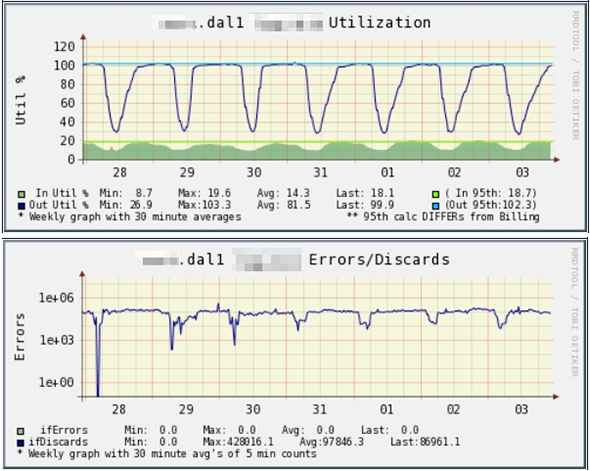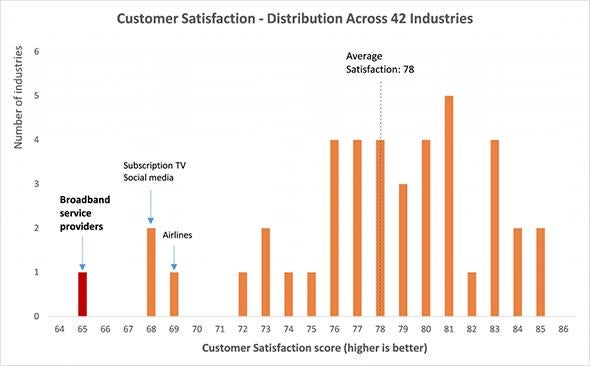The ongoing battle over broadband network neutrality is confusing, and the stakes for consumers and businesses are high. What’s the worst that can happen if network neutrality doesn’t prevail? Yes, you will pay more for worse service, but just how bad will it get? To answer that complicated question, there’s one easy analogy available: the California energy crisis of 2000.
In the late 1990s, the deregulation of the California utilities—which forced them to sell off their power supplies to independent electricity wholesalers—proved to be a disaster. The magic hand of the market was supposed to bring down energy fees for all. What happened instead was that “efficient markets” turned out to be nothing of the sort. In 2000, market manipulation, artificial scarcity created by shutting down power plants to reduce supply, and deliberately inferior service resulted in blackouts and brownouts, an 800 percent rise in energy prices, and lucrative profiteering by Enron. Southern California Edison and Pacific Gas and Electric went bankrupt, and the whole crisis cost somewhere upward of $40 billion.
Electricity wholesalers such as Enron are akin to Internet service providers such as Time Warner and Comcast in important ways. The electricity wholesalers had incentives to starve the energy market in order to extract greater fees from utilities and consumers. ISPs have similar incentives to manipulate their bandwidth in order to extract fees from websites (such as Netflix and YouTube), as well as not build out any infrastructure that would make bandwidth cheaper or make your Internet faster.
This is, in fact, what is already happening. Ars Technica reports that gigabit broadband could easily become a reality, but the ISPs have no interest in pursuing that path. Instead, ISPs like Time Warner repeatedly try to switch to capped bandwidth plans, despite widespread customer opposition to what is basically price gouging. In the face of actual competition, they wouldn’t dare.
Many customers are already living with a virtual Internet brownout. Tier 1 Internet provider Level 3, which provides top-level “backbone” services that reach the entire world, has posted several scary updates on the state of affairs. General counsel Michael Mooney observes that the ISPs are playing a game of chicken by demanding content providers pay them before they build out any further infrastructure. “These ISPs break the Internet by refusing to increase the size of their networks unless their tolls are paid,” Mooney said. Worse, they don’t even use the capacity they have, artificially starving their customers and slowing down the Internet. (Which explains why Game of Thrones is always buffering on your HBO Go, for example.) Level 3 Vice President Mark Taylor provided evidence that five U.S. ISPs (and one European ISP) are refusing to upgrade their infrastructure despite their connection ports being saturated. In other words, these ISPs are intentionally letting their service degrade because they’re cheap, like a city not fixing potholes in its roads.
If your Internet connection and streaming seem to have slowed down over the last year (as mine certainly has), Taylor has an answer: “permanent congestion” that has been in place for “well over a year,” because your ISP “refuses to augment capacity.” These ISPs, according to Taylor, “are deliberately harming the service they deliver to their paying customers. They are not allowing us to fulfill the requests their customers make for content.” He provided a graph showing one Dallas ISP in constant saturation, effectively an Internet brownout for its customers.

Courtesy of Level 3
Taylor did not identify the ISPs, but Time picked up on some clues, pointing to AT&T, Charter, CenturyLink, Time Warner Cable, and Comcast. (Time Warner and AT&T both serve Dallas, incidentally.) These titans exist in a market with very little competition, and it’s only getting worse: Time Warner is set to merge with the equally giant Comcast to form a behemoth that would cover 40 percent of the broadband market and 30 percent of the cable market. If network neutrality is weakened, as the Federal Communications Commission has been trying to do, ISPs will now be able to slow down traffic on a case-by-case basis. As “Future Tense” writer Marvin Ammori put it, “Once the court voids the nondiscrimination rule, AT&T, Verizon, and Comcast will be able to deliver some sites and services more quickly and reliably than others for any reason. Whim. Envy. Ignorance. Competition. Vengeance. Whatever. Or, no reason at all.”

Courtesy of Level 3
Alongside the terrible level of customer satisfaction with broadband ISPs, these existing abuses by ISPs with near-monopoly power should have policymakers raring for action. Yet regulatory capture is clearly in place. The head of the FCC, Obama appointee Tom Wheeler, is a former lobbyist for the very cable companies and telecoms he purports to regulate. Wheeler has done nothing to address existing problems while seeking to loosen what regulations there are by allowing ISPs to give preferential treatment to content providers. ISPs will be able to privilege—or deprivilege—traffic purely arbitrarily, creating Internet “fast lanes” for content providers who pay up and “slow lanes” for those who don’t … or just for content providers they don’t like. It’s payola, basically, wherein YouTube and Netflix will have to pony up (as Netflix just did to Comcast) so that customers can get the speeds they’re supposedly already entitled to.
Whatever your overall opinion on Obama, both left and right can agree that he sometimes embraces crony capitalism and corporate socialism at its worst, with Wheeler’s appointment as just one example. Just as IBM and Microsoft lost their footholds, uninnovative dinosaurs like Time Warner and AT&T should be flailing rather than thriving in our supposedly innovation-driven economy. But with Wheeler trying to chuck net neutrality even in the face of mounting protests, the dinosaurs probably have nothing to worry about.
